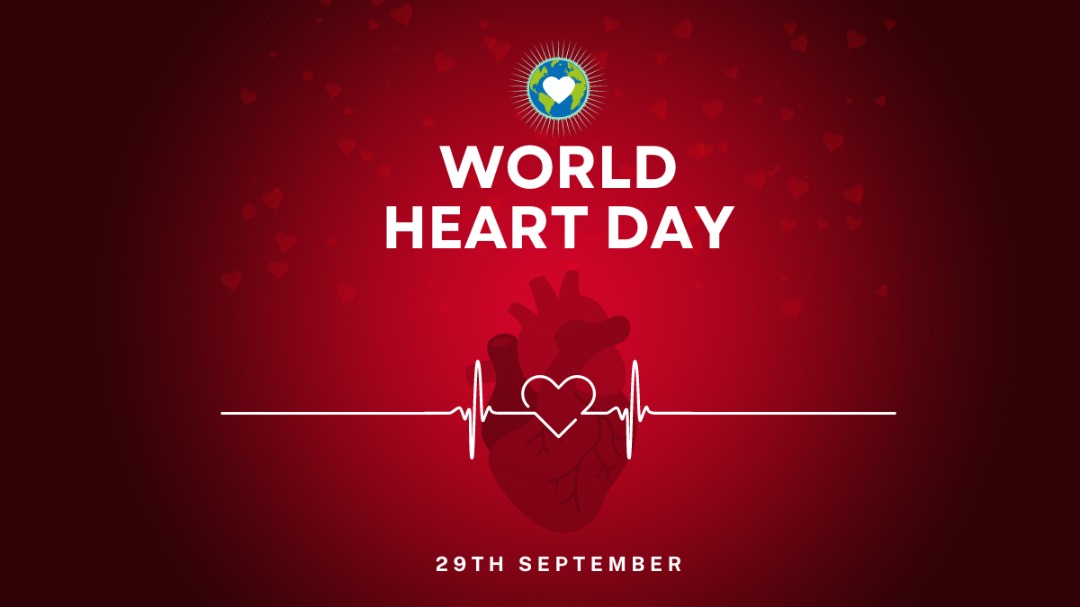World Heart Day: Adopt Healthy Food Policies To Curb Rising Cases Of CVDs, NCDs, CAPPA Urges Government
By Tor Vande-Acka
Copyright independent

TOR VANDE-ACKA
MAKURDI: Corporate Accountability and Public Participation Africa (CAPPA) has called on Federal and State Governments to as a matter of urgency adopt healthy food policies, as part of measures to curb the rising tide of Cardiovascular Diseases (CVDs) and other Non-Communicable Diseases (NCDs) in Nigeria.
The organization also appealed to authorities responsible, at all levels to implement evidence-based measures, including mandatory salt reduction targets, an effective sugar-sweetened beverages (SSB) tax of at least N130 per litre, mandatory front-of-pack warning labels (FOPWL) on packaged and ultra-processed foods (UPF),
In a statement on the occasion of the celebration of the 2025 World Heart Day, issued and signed by the Media and Communication Officer, CAPPA, Robert Egbe, on Sunday, advocated restrictions on advertising and marketing of junk foods, tobacco and smokeless nicotine products, especially to children, and an increase in tobacco taxes to at least 100 percent.
While CAPPA noted that 75 percent of deaths occur in low and middle-income countries like Nigeria, it argued that most of these deaths were preventable through policies that reduce harmful risk factors such as tobacco use, excessive salt and sugar consumption, physical inactivity, and alcohol abuse.
According to Egbe, CAPPA’s Executive Director, Akinbode Oluwafemi, charged tgovernment not to renege on its plan to earmark these taxes for strengthening the health sector.
“These measures are proven, cost-effective interventions that will save lives and protect families from the devastating health and financial burdens of heart disease and related illnesses,” he observed.
The statement which traced a connection between heart disease and unhealthy diets, noted that: “Excessive consumption of salt and sugar-sweetened beverages increases the risk of hypertension, diabetes, and obesity—key drivers of cardiovascular diseases. Similarly, tobacco use damages the heart and blood vessels, raising the risk of stroke and heart attacks.
“Nigeria is already paying the price. Cardiovascular Diseases (CVDs) are among the leading causes of death in the country. The Nigerian Cardiac Society recently revealed that about one-third of Nigerian adults live with high blood pressure, with rates rising to 40 per cent in some regions. Alarmingly, one-third of hypertensive Nigerians are undiagnosed, and another third have uncontrolled blood pressure despite knowing their status.”
“As of 2021, only 13 centres in Nigeria were conducting heart surgery, with just 80 heart surgeons serving a population of over 200 million people. Heart surgery costs have also risen steeply—from about ₦3 million to ₦5.5 million on average in 2024 according to media reports—placing lifesaving care far beyond the reach of most families.”
CAPPA also insisted that Nigeria cannot continue to rely solely on individual responsibility in the fight against CVDs and NCDs, stressing that strong government policies were needed to create healthier environments and ensure that healthier choices become the order of the day.
It emphasized that “By reducing salt in processed foods, introducing bold warning labels, increasing taxes on sugary drinks and tobacco, and restricting harmful marketing, Nigeria can significantly cut down the rising burden of heart disease,” the organisation stressed.
Urging the federal and state governments to act fast and decisively,CAPPA stressed that such policies not only protect public health but also reduce long-term healthcare costs, improve productivity, and support economic growth.
It therefore stated “We urge policymakers to put people before profits by adopting strong food and tobacco control measures. Protecting our hearts means protecting the country’s future.”
The annual celebration of the World Heart Day, aimed at increasing awareness about CVDs, empower individuals to adopt healthier lifestyles, and encourage governments to create environments that support heart-healthy living among other issues. End.



